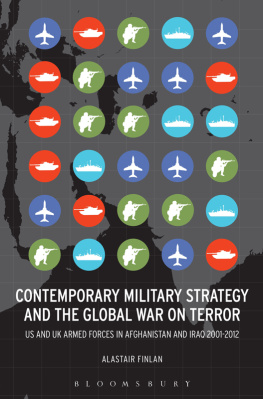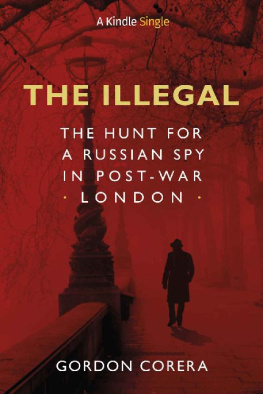
Understanding Contemporary Strategy
This textbook provides a comprehensive introduction to modern strategy, covering the context, theory, and practice of military strategy in all its different forms.
Covering all the main issues in the field, the book explores the major themes through a combination of classical and modern strategic theory, history, and current practice. It is split into three main sections:
- The first provides the context for contemporary strategy and includes discussions of the human, technological, intelligence, ethical, and grand strategic dimensions.
- The second part explores the theory and practice of strategy in different geographical domains, including land, sea, air, space, and cyberspace.
- The final part engages with three of the most challenging forms of strategy in the contemporary era: nuclear weapons, terrorism, and insurgency.
This second edition brings the book up to date by including discussions of the rise and fall of the Islamic State of Iraq and Syria (ISIS); the emergence of robotics and artificial intelligence; major events in space and cyberspace; and the growing profile of nuclear weapons. Each chapter presents the reader with a succinct summary of the topic, provides a challenging analysis of current issues, and finishes with key points, questions for discussion, and further reading.
This book will be essential reading for upper-level students of strategic studies, war studies, military history, and international security.
David J. Lonsdale is a senior lecturer in war studies at the University of Hull, UK, and author of four books.
Thomas M. Kane is an independent scholar and author of eight academic books.
Second edition published 2020
by Routledge
2 Park Square, Milton Park, Abingdon, Oxon, OX14 4RN
and by Routledge
52 Vanderbilt Avenue, New York, NY 10017
Routledge is an imprint of the Taylor & Francis Group, an informa business
2020 David J. Lonsdale and Thomas M. Kane
The right of David J. Lonsdale and Thomas M. Kane to be identified as authors of this work has been asserted by them in accordance with sections 77 and 78 of the Copyright, Designs and Patents Act 1988.
All rights reserved. No part of this book may be reprinted or reproduced or utilised in any form or by any electronic, mechanical, or other means, now known or hereafter invented, including photocopying and recording, or in any information storage or retrieval system, without permission in writing from the publishers.
Trademark notice: Product or corporate names may be trademarks or registered trademarks, and are used only for identification and explanation without intent to infringe.
First edition published by Routledge 2012
British Library Cataloguing-in-Publication Data
A catalogue record for this book is available from the British Library
Library of Congress Cataloging-in-Publication Data
Names: Lonsdale, David J., author. | Kane, Thomas M., 1969 author.
Title: Understanding contemporary strategy / David J. Lonsdale and Thomas M. Kane.
Description: Second edition. | London ; New York, NY : Routledge/Taylor & Francis
Group, 2020. | Kanes name appeared first in earlier edition. | Includes bibliographical
references and index.
Identifiers: LCCN 2019039656 (print) | LCCN 2019039657 (ebook)
Subjects: LCSH: StrategyTextbooks. | Military planningTextbooks. | Military
policyTextbooks.
Classification: LCC U162 .K268 2020 (print) | LCC U162 (ebook) | DDC 355.4dc23
LC record available at https://lccn.loc.gov/2019039656
LC ebook record available at https://lccn.loc.gov/2019039657
ISBN: 978-1-138-05946-7 (hbk)
ISBN: 978-1-138-05947-4 (pbk)
ISBN: 978-1-315-16353-6 (ebk)
Typeset in Avenir and Dante
by Apex CoVantage, LLC
This book is dedicated to Colin S. Gray, a great strategic thinker, mentor, and friend.
Contents
PART I
Context
PART II
The geographic domains
PART III
Contemporary strategic challenges
Guide
A book such as this is many years in the making. Developing an understanding of the many subjects occurs through a process of research, teaching, and discussion with colleagues and students. As a result, there are many people to thank. Most importantly, we would like to thank Colin S. Gray, who gave us a wonderful grounding in strategic studies during his PhD programme in the 1990s. It is a sign of his genuine commitment to the subject and his former students that Professor Gray continues to actively inspire and support us to this day. We have been fortunate to work with outstanding colleagues in various departments throughout our careers. In particular, we would like to show our appreciation to colleagues past and present at the Joint Services Command and Staff College, Reading University, and the University of Hull. We would also like to thank the many students who have shared our passion for strategy over the years. Engaging with them on the various topics covered in this book enabled us to develop and hone our ideas considerably. This book would not have happened without the patience and wisdom of Andrew Humphries at Routledge, whom it has been a pleasure to work with over a number of years. Finally, we would like to thank our families and friends. They continue to demonstrate overwhelming support for academic projects that too often dominate periods of our lives.
War is a matter of vital importance to the state; the province of life or death; the road to survival or ruin. It is mandatory that it be thoroughly studied.
These words, written approximately 2500 years ago by the Chinese general and theorist Sun Tzu, provide a simple but convincing impetus for academic study on the subject of war. Despite this persuasive call to intellectual arms, the study of war in its broader context remained undeveloped for much of history. Until the second half of the twentieth century the study of war had been largely restricted to the military. This, with a few notable exceptions (Clausewitz being the prime example), understandably led to a focus on tactical and operational issues and the development of principles for success. Military scholars and practitioners tended to focus on getting the job done rather than ruminating over war in its broader context. Thus, in the realm of military practice, it is rare to find serious study on the nature of war and its relationship to the other aspects of human sociopolitical activities.
This deficiency has been rectified, to some degree, with the academic discipline of strategic studies. In response to a call from the theorist Bernard Brodie, intellectual engagement with the subject of war has developed since the Second World War. This book seeks to further our understanding of war in both theory and practice. Importantly, it not only addresses the practice of strategy in all its forms but also discusses the context in which this occurs. To fully comprehend how strategy functions, it is essential to understand human, political, social, ethical, cultural, and technological contexts. Importantly, although strategic studies is an academic discipline, it has not become detached from military practice. There continues to be recognition that strategy is a practical subject with substantial consequences in the real world. As Brodie noted, Above all, strategic theory is a theory for action. That being the case, it is hoped that strategic studies has subjected war to rigorous intellectual analysis but at the same time has recognised the limits of theory in the practical and dangerous world of war. This current volume very much seeks to hold true to that tradition.










